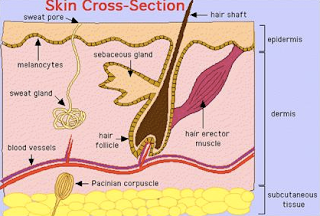These authors harvested intraoperative samples (1 skin, 1 superficial, 1 deep tissue, and 1 control sample) from the anterior shoulder in 112 patients having first time shoulder surgery (70 men, 42 women; aged 59.2 years) and cultured them for Propionibacterium. They then investigated the association between the presence of P acnes in the deep or superficial tissue, or both, and 10 items of a validated preoperative questionnaire for skin pathology.
Of these, 'loss of hair' was the only factor associated with positive cultures for Propionibacterium. The cultures were positive for P acnes in 38.4% (n = 43) of the cases. Skin samples were positive for P acnes in 8% (n = 9), superficial samples were positive in 23% (n = 26), and deep samples were positive in 30% (n = 34). Self-reported “loss of hair” was significantly negatively associated with the presence of P acnes in the superficial or deep tissue sample (P = .00028).
The charts below (which we made from the authors' data) indicate on the horizontal axis the patients' response to the hair loss question and on the vertical axis the number of 112 shoulders having positive (+) cultures for Priopionibacterium.
Note that virtually all of the positive cultures were in shoulders of patients with no hair loss. Note also that the number of deep cultures positive was greater than the number of superficial positive cultures.
Because hair loss is linked to follicular downsizing, the authors suggest that the preoperative reduction of pilosebaceous units around the shoulder could represent a key step to prevent P acnes infections.
Comment: This is a most interesting study. Less hair results from fewer or less functional hair follicles. These follicles are the 'home' of Propionibacterium, so hair loss may well correlate with a smaller wound inoculum when the skin is incised as the authors found in this study.
===
Check out the new Shoulder Arthritis Book - click here.
Use the "Search" box to the right to find other topics of interest to you.
You may be interested in some of our most visited web pages including:shoulder arthritis, total shoulder, ream and run, reverse total shoulder, CTA arthroplasty, and rotator cuff surgery as well as the 'ream and run essentials'




